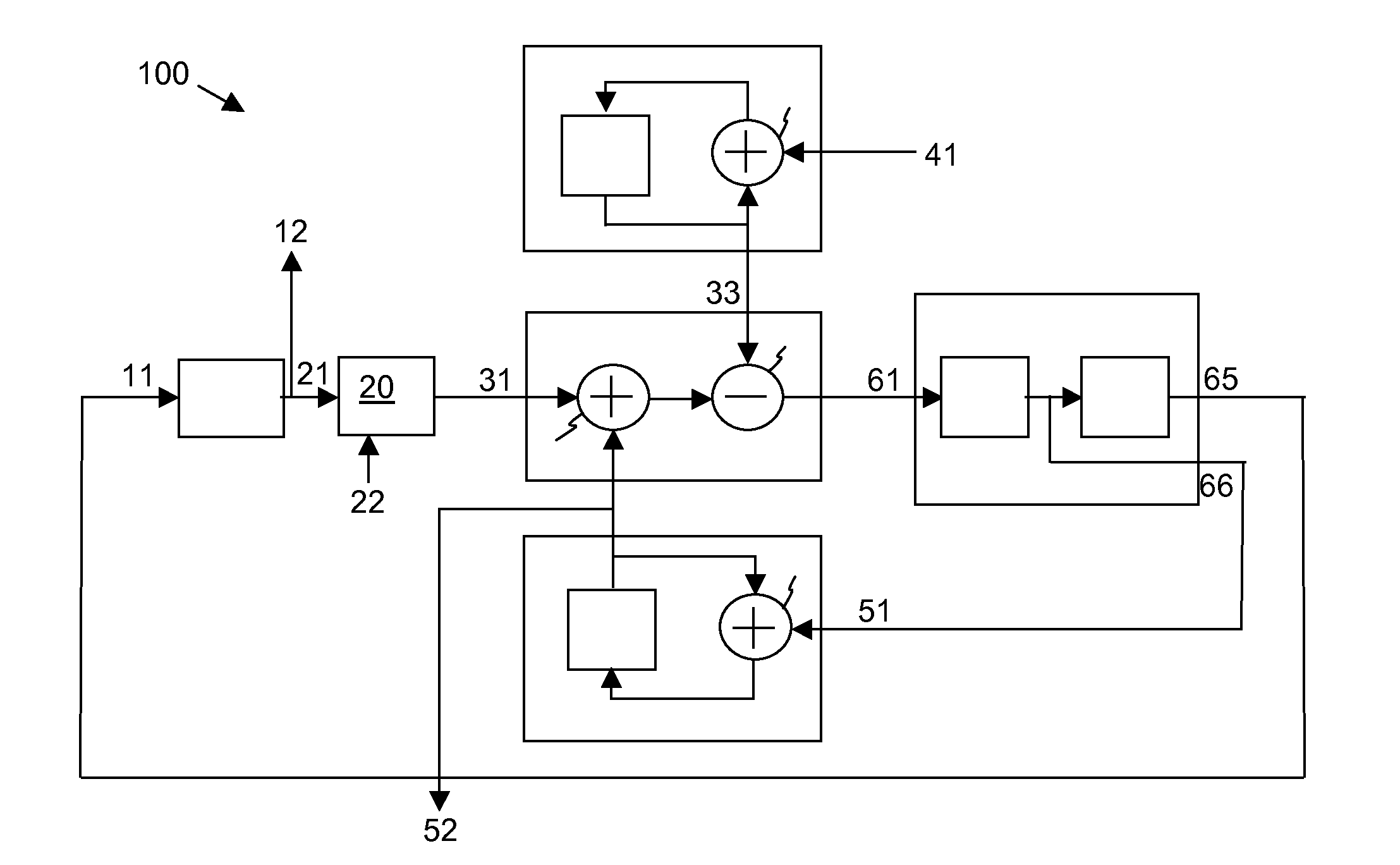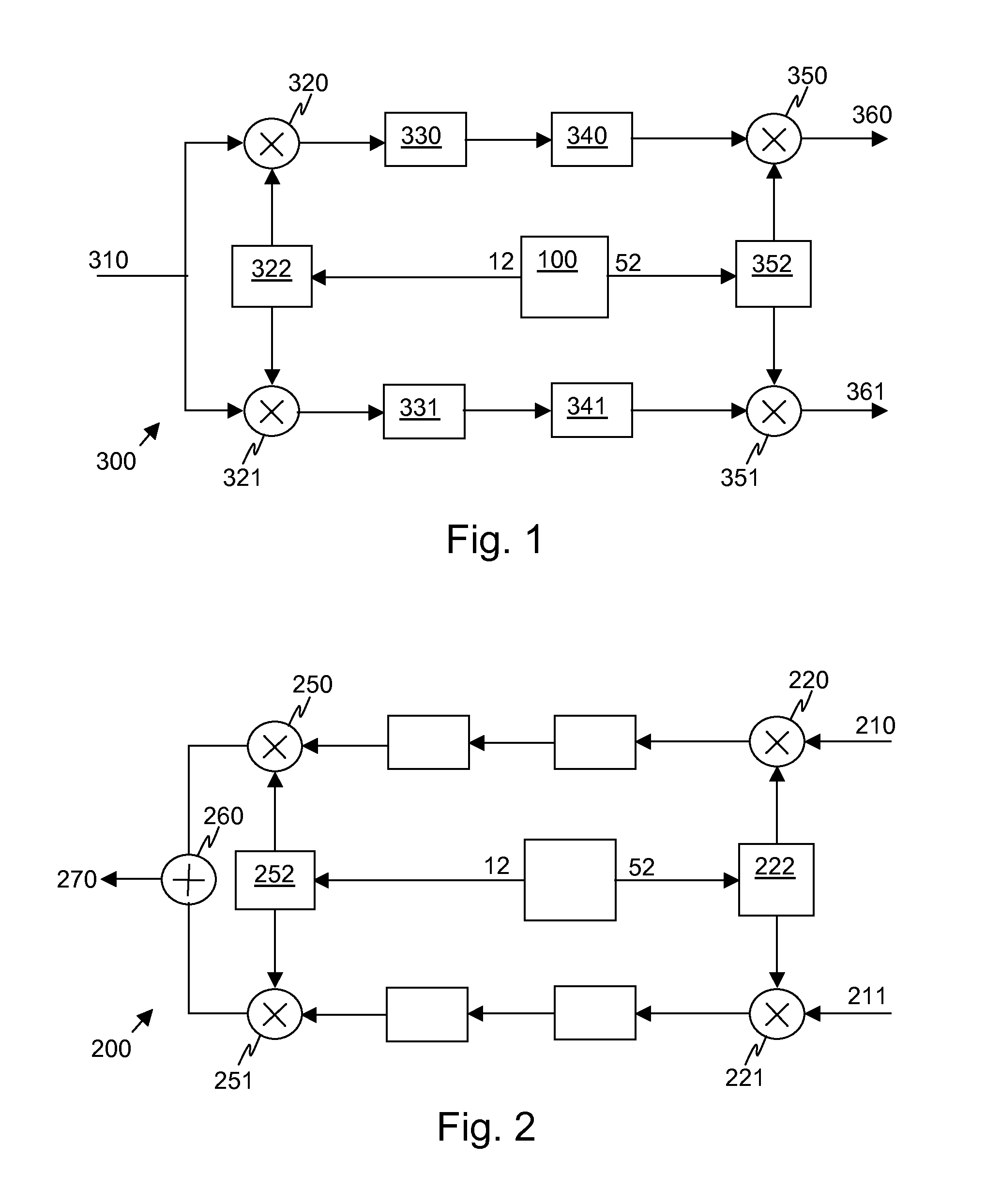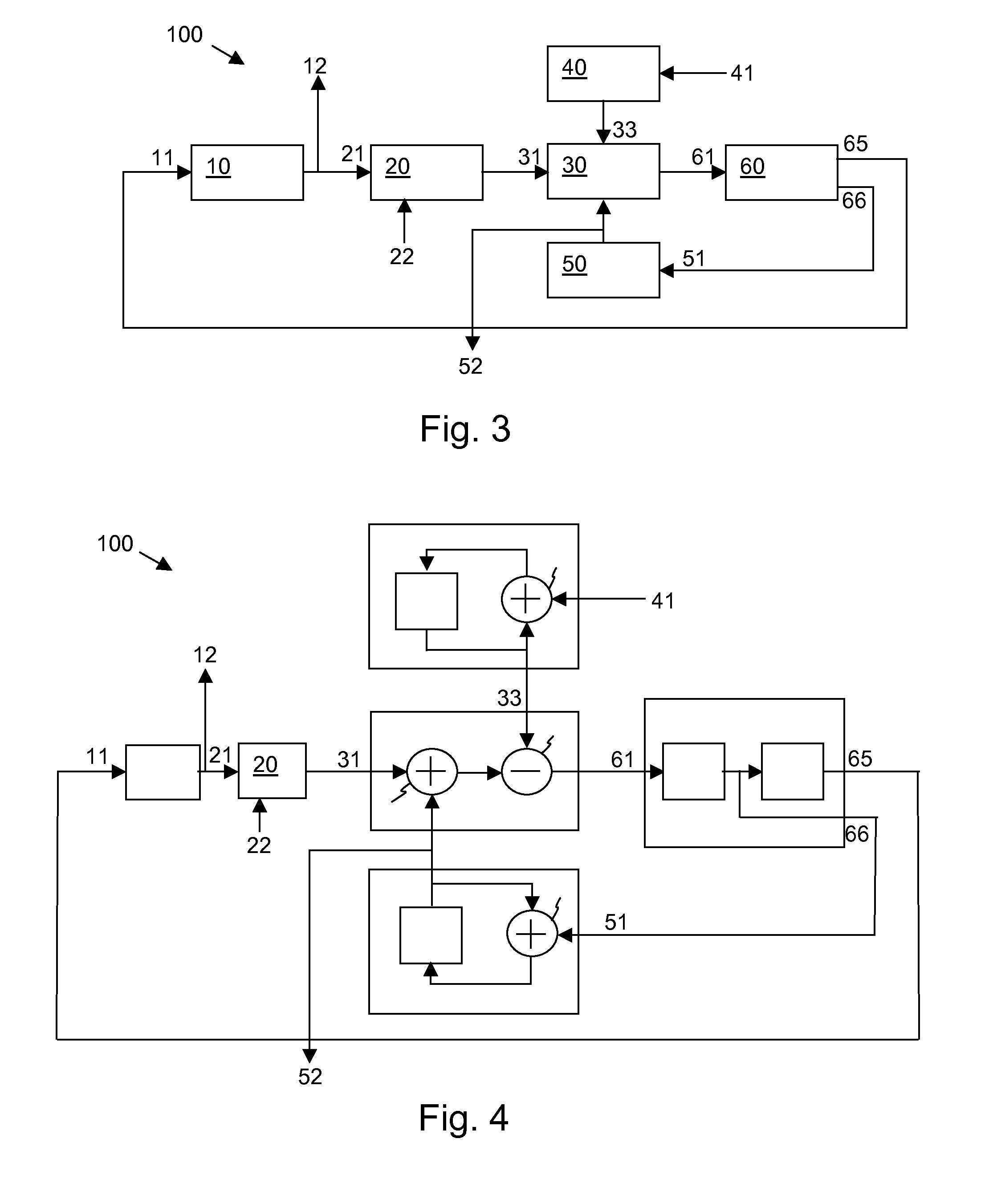Frequency synthesis
a frequency synthesiser and frequency technology, applied in the direction of oscillation generators, electric long antennas, antennas, etc., can solve the problems of deteriorating receiver performance, or more importantly transmit spectrum, affecting the performance of receivers, etc., to achieve high precision frequency control, simple phase control, and optimise loop performance
- Summary
- Abstract
- Description
- Claims
- Application Information
AI Technical Summary
Benefits of technology
Problems solved by technology
Method used
Image
Examples
Embodiment Construction
[0047]Referring to FIG. 1, there is illustrated a receiver comprising an input 310 for an RF received signal provided by a non-illustrated antenna. The input 310 is coupled to mixers 320, 321 for multiplying the RF received signal by respective quadrature components of an RF local oscillator signal. A first oscillator signal is provided by an output 12 of a frequency synthesiser 100 to a divider 322 which divides the first oscillator signal and provides the quadrature components of the RF local oscillator signal to the mixers 320, 321. The frequency of the first oscillator signal may be twice the required frequency of the RF local oscillator signal, in which case the divider 322 divides by two. This division ratio conveniently enables the quadrature components to be derived in a simple manner, although other ratios may alternatively be used.
[0048]Respective outputs of the mixers 320, 321 provide IF analogue I and Q signals, and these outputs are coupled to respective low-pass filter...
PUM
 Login to View More
Login to View More Abstract
Description
Claims
Application Information
 Login to View More
Login to View More - R&D
- Intellectual Property
- Life Sciences
- Materials
- Tech Scout
- Unparalleled Data Quality
- Higher Quality Content
- 60% Fewer Hallucinations
Browse by: Latest US Patents, China's latest patents, Technical Efficacy Thesaurus, Application Domain, Technology Topic, Popular Technical Reports.
© 2025 PatSnap. All rights reserved.Legal|Privacy policy|Modern Slavery Act Transparency Statement|Sitemap|About US| Contact US: help@patsnap.com



